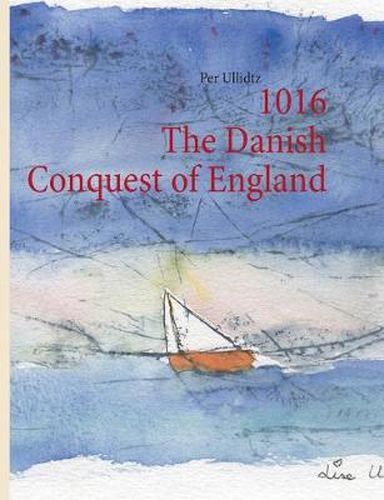Readings Newsletter
Become a Readings Member to make your shopping experience even easier.
Sign in or sign up for free!
You’re not far away from qualifying for FREE standard shipping within Australia
You’ve qualified for FREE standard shipping within Australia
The cart is loading…






This title is printed to order. This book may have been self-published. If so, we cannot guarantee the quality of the content. In the main most books will have gone through the editing process however some may not. We therefore suggest that you be aware of this before ordering this book. If in doubt check either the author or publisher’s details as we are unable to accept any returns unless they are faulty. Please contact us if you have any questions.
Mention the conquest of England, and the answer is 1066 and William the Conqueror, but fifty years earlier, England was conquered by Cnut the Dane. It came as no surprise. His father, the Danish King Sven Forkbeard, had done the same thing in 1013, but when he died shortly afterwards the country reverted to King Aethelred Unred. But the story goes back much further than that. The populations around the shores of the North Sea are surprisingly homogeneous genetically, and have been so since the Neolithic era. Exchanges of goods, culture, and wives across the North Sea have been going on for millennia, and the oldest Anglo-Saxon poems, like Beowulf, tell of Danish kings in a glorious past. Relations were not always peaceful, and at the end of the eighth century they developed into a religious war. When Christian missionaries destroyed heathen idols and temples, the pagan Vikings responded by pillaging churches and monasteries and trampling on holy relics. It took several hundred years before the last pagans were converted, and in the meantime they had settled on the shores of England and France, in Danelaw and Normandy. Cnut believed that he had a claim on the English throne through his forefathers in the Danelaw and through Edward the Elder, but his North Sea Empire inaugurated the most prosperous and peaceful decades of medieval English history. It crumbled quickly upon his dead, and gave way to a superior Continental culture, but it still has some appeal today, with its simplicity and naivety.
$9.00 standard shipping within Australia
FREE standard shipping within Australia for orders over $100.00
Express & International shipping calculated at checkout
This title is printed to order. This book may have been self-published. If so, we cannot guarantee the quality of the content. In the main most books will have gone through the editing process however some may not. We therefore suggest that you be aware of this before ordering this book. If in doubt check either the author or publisher’s details as we are unable to accept any returns unless they are faulty. Please contact us if you have any questions.
Mention the conquest of England, and the answer is 1066 and William the Conqueror, but fifty years earlier, England was conquered by Cnut the Dane. It came as no surprise. His father, the Danish King Sven Forkbeard, had done the same thing in 1013, but when he died shortly afterwards the country reverted to King Aethelred Unred. But the story goes back much further than that. The populations around the shores of the North Sea are surprisingly homogeneous genetically, and have been so since the Neolithic era. Exchanges of goods, culture, and wives across the North Sea have been going on for millennia, and the oldest Anglo-Saxon poems, like Beowulf, tell of Danish kings in a glorious past. Relations were not always peaceful, and at the end of the eighth century they developed into a religious war. When Christian missionaries destroyed heathen idols and temples, the pagan Vikings responded by pillaging churches and monasteries and trampling on holy relics. It took several hundred years before the last pagans were converted, and in the meantime they had settled on the shores of England and France, in Danelaw and Normandy. Cnut believed that he had a claim on the English throne through his forefathers in the Danelaw and through Edward the Elder, but his North Sea Empire inaugurated the most prosperous and peaceful decades of medieval English history. It crumbled quickly upon his dead, and gave way to a superior Continental culture, but it still has some appeal today, with its simplicity and naivety.